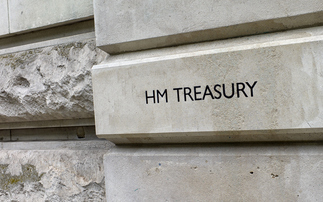Investment Week has summarised the top 15 points from Philip Hammond's first, and last, Autumn Statement since being appointed as Chancellor in July.
11. Boost to VCTs
The Chancellor announced plans to inject an initial £400m into venture capital funds through the British Business Bank, "unlocking £1bn of new finance for growing firms".
He also announced an additional £2bn more per year in research and development funding by 2020/21 for universities and businesses with R&D projects.
"This will back scientific research and development of technologies such as robotics, artificial intelligence and industrial biotechnology," the government said.
12. Pension triple lock retained
Included in the statement was a pledge to retain the pension triple-lock through this parliament.
The triple lock - the mechanism by which the government increases the state pension each April by the higher of growth in average earnings, the Consumer Price Index (CPI) or 2.5% - will now remain in place at least until the next General Election, which is scheduled for 2020.
13. Money Purchase Annual Allowance cut
The Money Purchase Annual Allowance (MPAA) will be cut from £10,000 to £4,000 in order "to prevent inappropriate double tax relief".
The annual allowance limit applies to individuals who have flexibly accessed their pension benefits. The original limit of £10,000 was introduced in April 2015 to stop people claiming further tax relief on any new contributions made to their pots. The new limit will be applied in April 2017.
In the official Autumn Statement document, the government said it "does not consider that earners aged 55 and over should be able to enjoy double pension tax relief, such as relief on recycled pension savings, but does wish to offer scope for those who have needed to access their savings to subsequently rebuild them". The government is to consult on the details.
14. Restrictions to the use of salary sacrifice
From April 2017, most salary sacrifice schemes will be subject to the same tax as cash income.
The new measures will affect some types of salary sacrifice schemes differently, with pensions, pensions advice, childcare, 'Cycle to Work' and ultra-low emission cars exempt.
15. Reduction to Universal Credit taper from 65% to 64%
In Universal Credit, as a person's income increases, their benefit payments are gradually reduced. The taper rate calculates the reduction in benefits as a person's salary increases.
Currently, for every £1 earned after tax above an income threshold, a person receiving Universal Credit has their benefit award reduced by 65p and keeps 35p. From April next year, they will keep 37p for every £1.














